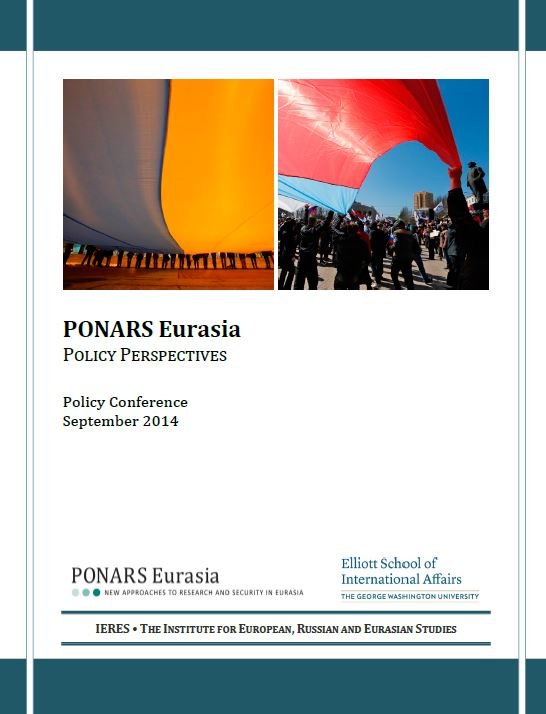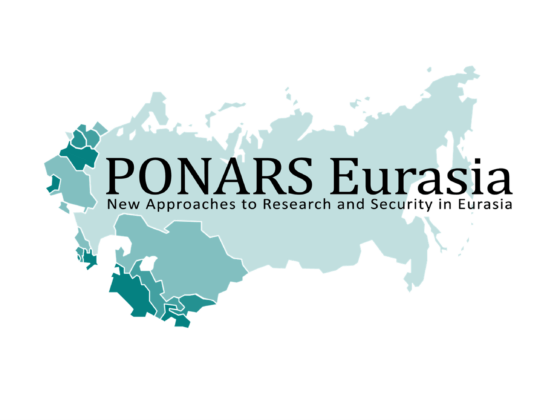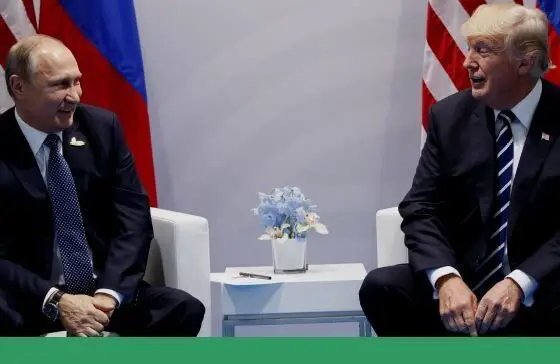This collection of policy memos is an accompanying volume to the 2014 annual conference of the Program on New Approaches to Research and Security in Eurasia (PONARS Eurasia), held at the George Washington University’s Elliott School of International Affairs on September 22-23, 2014.
PONARS Eurasia is a network of over 100 scholars, mainly from North America and post-Soviet Eurasia, who advance new policy approaches to research and security in Russia and Eurasia. Its core missions are to connect scholarship to policy on and in Russia and Eurasia and to foster a community, especially of mid-career and rising scholars, committed to developing policy-relevant and collaborative research.
The thirty-one contributions in this volume were written and originally published between July and September 2014. They are grouped by topic rather than date of publication and in the order of the conference panels.
The Ukraine crisis and its consequences dominate the volume. The first section includes five memos on the future of Ukraine: its domestic politics and governance; health and demographics; and relations with Russia, the European Union, and NATO. Another section (the fourth) takes a nuanced look at the role of psychology, emotion, and other domestic factors in the Donbas insurgency and the state’s response, as well as in post-traumatic political mobilization elsewhere, in the Russian republic of North Ossetia. The fifth section explores the impact of the Ukraine crisis on the foreign policies of other post-Soviet states in the EU’s “Eastern Partnership,” including Belarus, Georgia, Azerbaijan, and Armenia.
The volume also focuses on Russian foreign policy and domestic politics in the wake of the Ukraine crisis. The second section explores Russia’s efforts to secure alternative partners to the West, chiefly China, in energy and international affairs. The next section addresses two underappreciated aspects of authoritarian hardening in Russia today: tightening restrictions on internet activity and historical investigation. The sixth section takes stock of the political opposition in Russia today and trends in protest activity in Russia as well as other post-Soviet states. The seventh section investigates how the Ukraine crisis has impacted Russian attitudes toward the West, at the level of Russian state policy and public opinion, as well as regional integration projects that previously sought to build bridges between Russia and the West. The final section explores issues of identity, borders, and nationalism: the impact of Russia’s immigrants, minorities, and nationalists in shaping the contours of the state; Russia’s approach to Ukraine’s nation-building efforts; and the fate of borders in today’s international system.
We hope you will find these policy perspectives informative and thought-provoking. Many individuals were instrumental in the production of this volume, as well as the organization of the 2014 PONARS Eurasia Policy Conference. In addition to all authors and conference participants, we would like to especially thank Managing Editor Alexander Schmemann; Program Coordinator Olga Novikova; Graduate Research Assistant Daniel Heintz; and IERES Director Peter Rollberg.
PONARS Eurasia, together with the George Washington University’s Elliott School of International Affairs, expresses its deep appreciation to Carnegie Corporation of New York and the John D. and Catherine T. MacArthur Foundation for their support.









